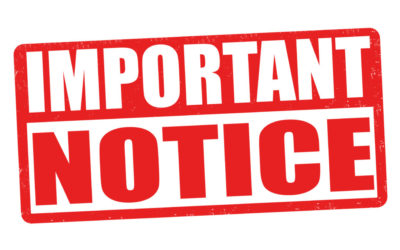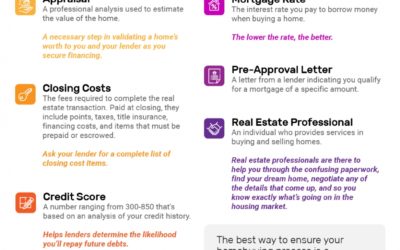
When you’re thinking about buying a home, your credit score is one of the biggest pieces of the puzzle. Think of it like your financial report card that lenders look at when trying to figure out if you qualify, and which home loan will work best for you. As the Mortgage Report says:
“Good credit scores communicate to lenders that you have a track record for properly managing your debts. For this reason, the higher your score, the better your chances of qualifying for a mortgage.”
The trouble is most buyers overestimate the minimum credit score they need to buy a home. According to a report from Fannie Mae, only 32% of consumers have a good idea of what lenders require. That means nearly 2 out of every 3 people don’t.
So, here’s a general ballpark to give you a rough idea. Experian says:
“The minimum credit score needed to buy a house can range from 500 to 700, but will ultimately depend on the type of mortgage loan you’re applying for and your lender. Most lenders require a minimum credit score of 620 to buy a house with a conventional mortgage.”
Basically, it varies. So, even if your credit isn’t perfect, there are still options out there. FICO explains:
“While many lenders use credit scores like FICO Scores to help them make lending decisions, each lender has its own strategy, including the level of risk it finds acceptable. There is no single “cutoff score” used by all lenders, and there are many additional factors that lenders may use . . .”
And if your credit score needs a little TLC, don’t worry—Experian says there are some easy steps you can take to give it a boost, including:
1. Pay Your Bills on Time
Lenders want to see that you can reliably pay your bills on time. This includes everything from credit cards to utilities and cell phone bills. Consistent, on-time payments show you’re a responsible borrower.
2. Pay Off Outstanding Debt
Paying down what you owe can help lower your overall debt and make you less of a risk to lenders. Plus, it improves your credit utilization ratio (how much credit you’re using compared to your total limit). A lower ratio means you’re more reliable to lenders.
3. Don’t Apply for Too Much Credit
While it might be tempting to open more credit cards to build your score, it’s best to hold off. Too many new credit applications can lead to hard inquiries on your report, which can temporarily lower your score.
Bottom Line
Your credit score is crucial when buying a home. Even if your score isn’t perfect, there are still pathways to homeownership.
Working with a trusted lender is the best way to get more information on how your credit score could factor into your home loan.
To view original article, visit Keeping Current Matters.
Informative Video on Coronavirus
The World Health Organization produced this video in January. It is still worth watching and explains the origins of the virus.
Important Notice Regarding the Coronavirus And Real Estate
BrookHampton Realty will not be showing any properties for the time being. The safety of our clients and agents comes before all other concerns.
Three Reasons Why This Is Not a Housing Crisis
In times of uncertainty, one of the best things we can do to ease our fears is to educate ourselves with research, facts, and data.
How to Wash Your Hands
Yes, there’s a proper way to wash your hands. This video from the World Health Organization shows us how to do it. We can all do our part and it’s as simple as washing our hands!
5 Simple Graphs Proving This Is NOT Like the Last Time
There are many reasons indicating this real estate market is nothing like 2008. Take a look at 5 graphs that show the dramatic differences.
Buying a Home: Do You Know the Lingo?
To point you in the right direction, here’s a list of some of the most common language you’ll hear throughout the home buying process.







.jpg )



